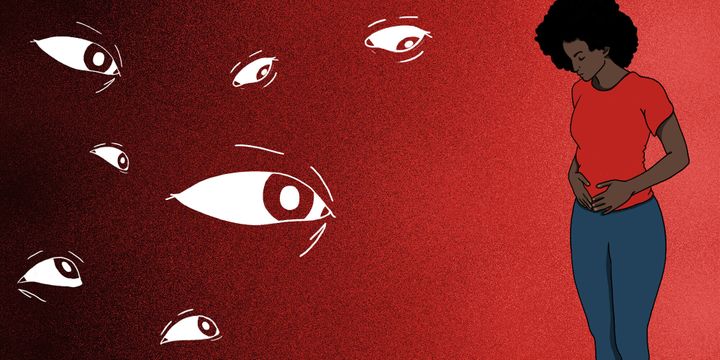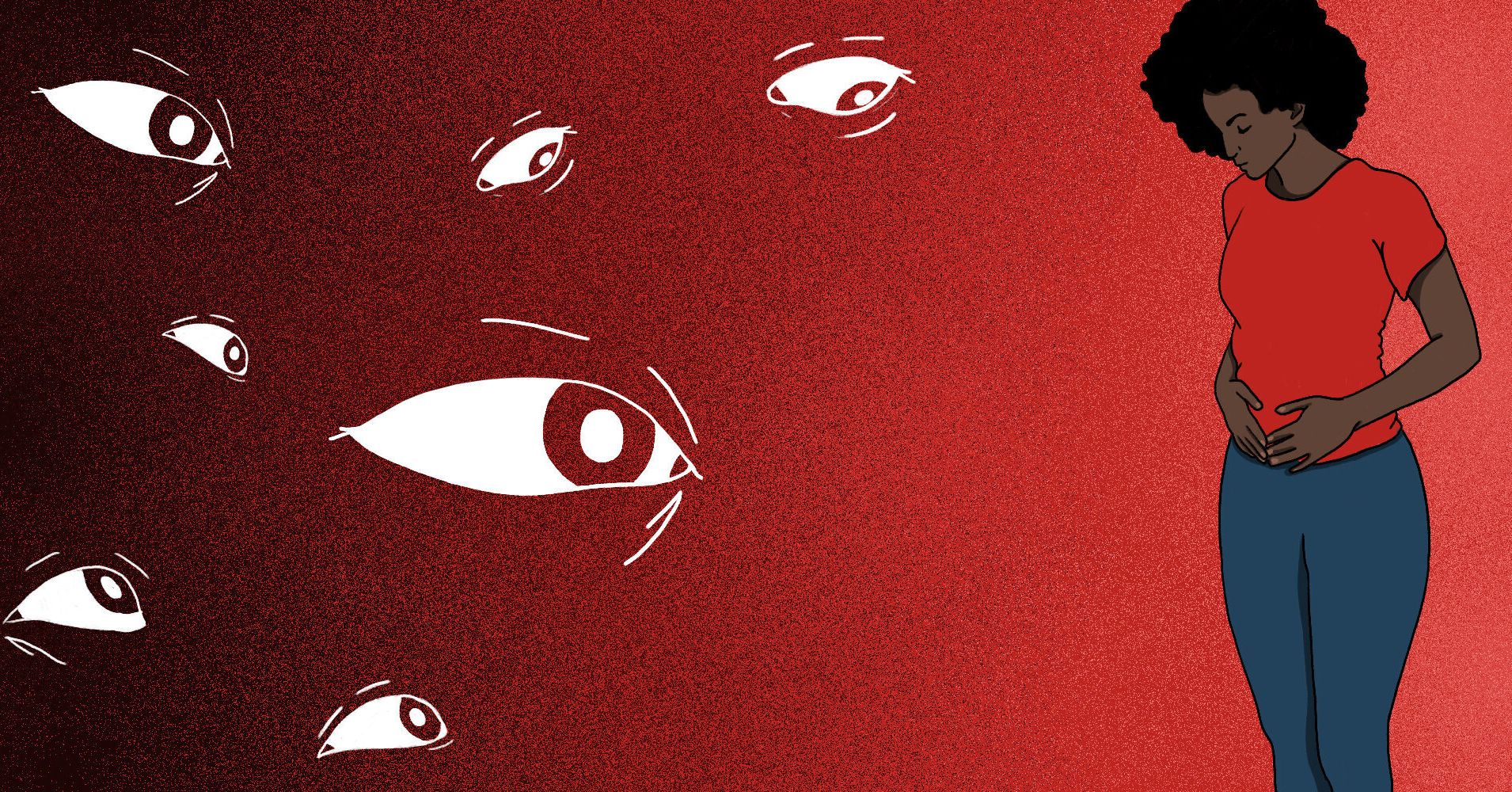[ad_1]
The first half of 2019 saw a deluge of laws banning and restricting abortion. Within the past three months alone, state legislatures in both Alabama and Missouri moved to ban abortion outright; other state legislatures around the country have taken similar steps since the start of the year.
It is mostly women of color who will feel the impact of such bans, should these efforts take hold. Recent studies show women of color account for more than half of the country’s annual abortion procedures on average, and Black women specifically account for just over 25 percent of all abortions.
Linda Goler Blount, chief executive of the Black Women’s Health Imperative based in Atlanta, Georgia, is focused on ensuring that reproductive health access remains a right. Activist Byllyle Avery founded the BWHI in 1983. That same year, the group held its first conference on Black women’s health at the campus of Spelman College.

HuffPost spoke with Goler Blount last month about her current stewardship of the organization, the obvious barriers Black women face in acquiring reproductive care, and the more insidious methods used to bar Black women from abortion access.
Your organization is focused on Black women’s reproductive health. Will you explain why there’s a need for this focus?
[Since our founding], we’ve been the only national organization focused on Black women’s health, a woman’s right to choose, and what reproductive justice means for Black women, because it obviously means something different for Black women than white women. We talk about intersectionality: It’s race, it’s class, it’s gender, as well as other factors. And these factors combine in a way for Black women that is different for white women.
They not only reduce our choices and access needed to take care of ourselves, they also produce an environment where we’re judged very harshly by the medical community and frankly by the policy community when it comes to having control over our reproductive health. And one of the things, from a cultural perspective, that complicates this is this tension created by what we would call “Black Conservatism.”
We’re religious, we’re faithful, and we live as best we can by the word — but we’re also human beings
I’d like to dig deeper into that. For the sake of this conversation, what do we mean by “Black Conservatism”? A lot of people hear “Black conservatives” and think you mean “Black Republicans,” but that’s often not the case.
Yeah. So if you survey the African American population, the majority — between 65 and 75 percent — will say they support a woman’s right to choose and that abortion should be legal as it is. But in certain quarters, when you talk to conservative Black folks, these are people who say, “Well, this shouldn’t be necessary.” And while that’s true — if we had absolute access to abortion care and we lived in a society where women were valued, respected and listened to — then sure, it would be exceedingly rare. But there’s a tension between the interpretation of religious texts and human behavior. So while even these conservatives are part of that group that says, “Yes, a woman should have a right to choose,” in certain conversations, it comes out very differently.
I understand. So here, we’re talking about Black people whose conservatism is more religious than political. And that religiosity is dictating how they feel about reproductive health and gender roles generally?
Yes. And what that means for Black women in particular is that we sort of have additional guilt we have to deal with, because many of us are in the church. We’re religious, we’re faithful, and we live as best we can by the word — but we’re also human beings. So this creates this sort of guilty tension that Black women have talked to us about feeling.
What kinds of things have you heard from Black women you’ve interacted with?
They’ll say, “I’m practicing a religion — I wanna say I’m a Christian. But then I have my life, and I had an abortion. Does that make me a bad person?”
That guilt is what I wanted to get at. Many of us are aware Black women on lower economic rungs are denied access, but Black women at all socioeconomic levels are being urged against abortion by those social ― and frankly, patriarchal ― pressures you’re speaking about.
In a significant percentage of families, women don’t even tell their families if they’ve had an abortion or are going to need one. It’s because they’re afraid of the judgment and because they know people who have been through the experience and feel exceedingly guilty and shamed over it, as though they’ve failed their families or failed God.
The restrictions, the condemnation and the judgment are even harsher on us, and after generations and generations, we as a community have internalized that
How do you soothe that guilt? The campaign to shame women out of reproductive health measures is an enduring one, and by the sound of it, an effective one.
In our conversations, saying “this is a legal and constitutional right” doesn’t address the guilt at all. But when we have these conversations, we say, “We understand how you feel, but” — and I’m not by any stretch a religious scholar — “in the text it says no man or woman is without sin.” So why are we putting so much more weight on this particular act than any other act?
I’ve sat in many focus groups and listened to conversations where women will say, “We all sin from time to time.” But we don’t beat ourselves every single day over a little white lie, or not tithing as much. But this matter has taken on an outsize proportion.
Why do you think that is?
It’s because of the political, cultural and historical environment of men in power — particularly white men — wanting to control women’s bodies. It goes back 400 years. It’s Black women and white women, but Black women, of course — having been slaves and considered chattel — were even less valued. So the restrictions, the condemnation and the judgment are even harsher on us, and after generations and generations, we as a community have internalized that so that this comes out in the kinds of statements you hear from cabinet officials and others.
When we do exercise control over our bodies, we’re made to feel terribly guilty over those decisions even when we know they’re the right ones
That’s what really made Clarence Thomas’s recent opinion invoking eugenics sound an alarm in my head, and why I’m so grateful to hear from you today.
He was pretty brazenly weaponizing that guilt you spoke of in trying to link Black women and the institutions supporting their reproductive rights to the destruction of Black people.
Right. And of course that is not the case, but it is intended to put more guilt on women. So not only are he and people like him saying “you’re a bad person.” Now, they’re heaping the potential destruction of an entire race on women — which couldn’t be further from the truth. And when you put these other factors in there — racism, classism and historical trauma literally in our DNA — it just makes this issue even more fraught for Black women. When we do exercise control over our bodies, we’re made to feel terribly guilty over those decisions even when we know they’re the right ones.
What motivates you to do this work? Although I consider it righteous work, I wonder whether it’s taxing on you emotionally and what things you might do to counteract that.
You know that saying: “To whom much is given, much is required.” I have to do this, because I see it every day. I see the stress in women’s faces. I see the effect that stress and living in this society during this time is having on us. I see what happens when women don’t have access to basic health care, to child care, to getting preventive services, to getting a decent job. I see what happens when we get paid 62 cents on the dollar compared to white men, and when we sit in a boardroom and we get ignored while someone gets celebrated for saying exactly what we said. It all takes a toll on us, and so somebody — some group, some people — have to be out there fighting every single day.
This interview has been edited for clarity and length.
REAL LIFE. REAL NEWS. REAL VOICES.
Help us tell more of the stories that matter from voices that too often remain unheard.
[ad_2]
Source link

